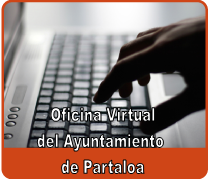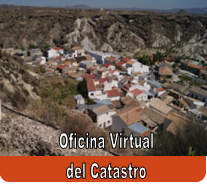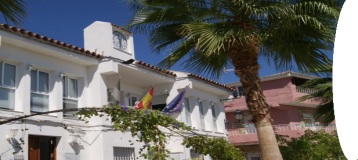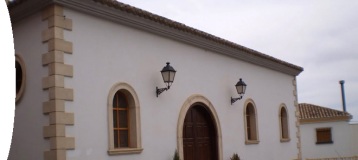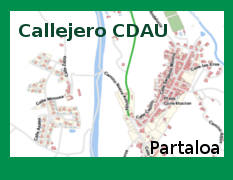<p>Para <strong>casarse por la Iglesia</strong> es necesario pedir día y hora al párroco de la Iglesia de Partaloa "San Antonio de Padua" , quien informará a los contrayentes de los pasos a seguir. La documentación que se solicita para la realización del expediente es la siguiente: </p>
<ol>
<li>Partida de nacimiento de ambos contrayentes, que se obtiene en el Registro Civil del lugar de nacimiento. </li>
<li>Partida de bautismo, que debe solicitarse en la Iglesia donde ha sido bautizado/a.</li>
<li>Certificado de soltería eclesiástico en el caso de que uno de los contrayentes haya pasado más de un año en el extranjero o proceda de una diócesis diferente de donde se va a casar.</li>
<li>Certificado de haber realizado el curso de preparación al matrimonio (cursillos prematrimoniales).</li>
</ol>
<p>Una vez realizado el Expediente, este se llevará al Obispado de Almería.</p>
<p>Una vez celebrada la boda eclesiástica, antes de que hayan pasado 5 días, deberá irse al Registro Civil para que el matrimonio sea trascrito a los libros. Si la diócesis en la que contraen matrimonio no es la misma que donde vivirán, deberán obtener una declaración y un permiso del rector de la diócesis a la que pertenezcan.</p>
<p>Para <strong>casarse por civil</strong> la tramitación se realiza en el Juzgado de Paz de Partaloa, donde se informa y se tramita la entrega del certificado necesario para presentarlo en el Ayuntamiento, que es donde se va a celebrar en el Ayuntamiento. La ceremonia dura unos 15 minutos, concluye con la firma del registro de los contrayentes y sus dos testigos y con la entrega del libro de familia. Se necesitan los siguientes documentos:</p>
<ol>
<li>Fotocopias del D.N.I. de los contrayentes, o en su defecto del pasaporte o tarjeta de residencia.</li>
<li>Certificado literal de nacimiento actualizado, expedido por el Registro Civil del lugar de nacimiento.</li>
<li>Certificado de residencia del ayuntamiento de la población en la que ha residido en los últimos dos años.</li>
<li>Certificado de nacionalidad.</li>
<li>Certificado de soltería, declaración jurada del estado civil que facilita el juzgado.</li>
<li>Fotocopia de los carnés de identidad de los dos testigos que van a estar presentes en la ceremonia del Ayuntamiento.</li>
</ol>
<p>Por último, hay que rellenar la instancia del Registro Civil.</p>
...I want to get married.
For a religious wedding you have to make a request to the priest of Partaloa Church “San Antonio de Padua” who will give you information about how to proceed. You will need the documentation listed below:
Birth Certificate of both parties (it has to be collected in the Civil Registry of the place of birth)
Baptismal Certificate of the couple. (These records are kept only in the parish where the event took place.)
Unmarried State Certificate. When one of the contracting parties has been abroad more than a year or he came from a different diocese.
Pre-Cana Certificate.
Once the documentation is accomplished, it will be taken to Almería bishopric.
After the religious wedding ceremony, and in the following five days, they have to go to Civil Registry in order to register the marriage. If the diocese where the wedding is celebrated is not the one where the couple will live, they must pay an authorization from the rector of their diocese.
For a civil ceremony, the processing is accomplished in the Peace Court of Partaloa Town Council, where they will give you the information that you will need and they will process your request properly, in order to provide you the documentation needed for the perform of the wedding into the Council, which is the place where the ceremony will take place.
The time estimated for the ceremony is about fifteen minutes, and, at the end, the wedding couple and the witnesses sign the contracting document and The Major will provide them their Family Record Book. The documents listed below are needed:
Copies of both D.N.I.s or Passports.
Birth Certificate issued by the Civil Registry in the place of birth.
Residence certificate issued by the Council of their place of residence in the last two years.
Nationality Certificate.
Unmarried State Certificate, affidavit provided by the court.
Finally, they must fill in the request document in the Civil Registry of the Council.
